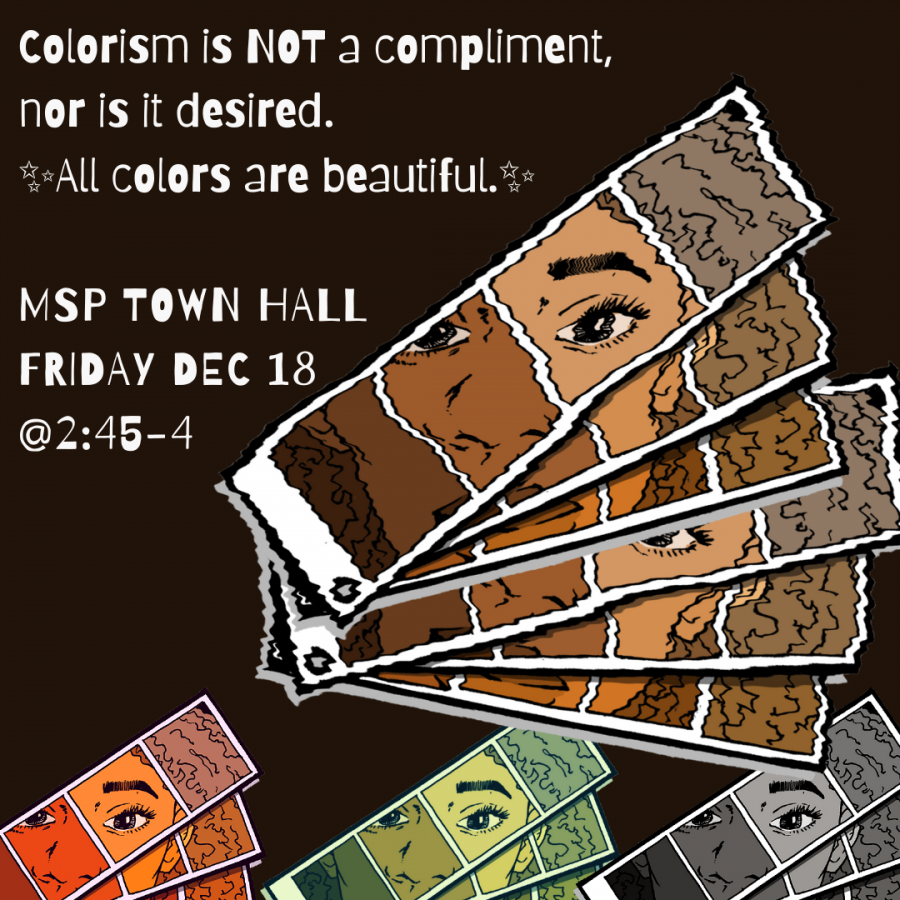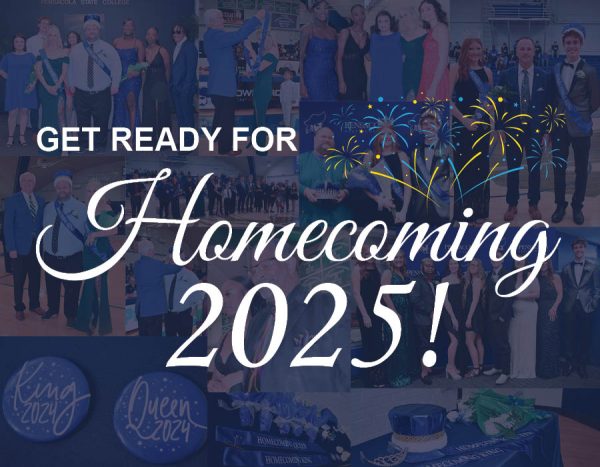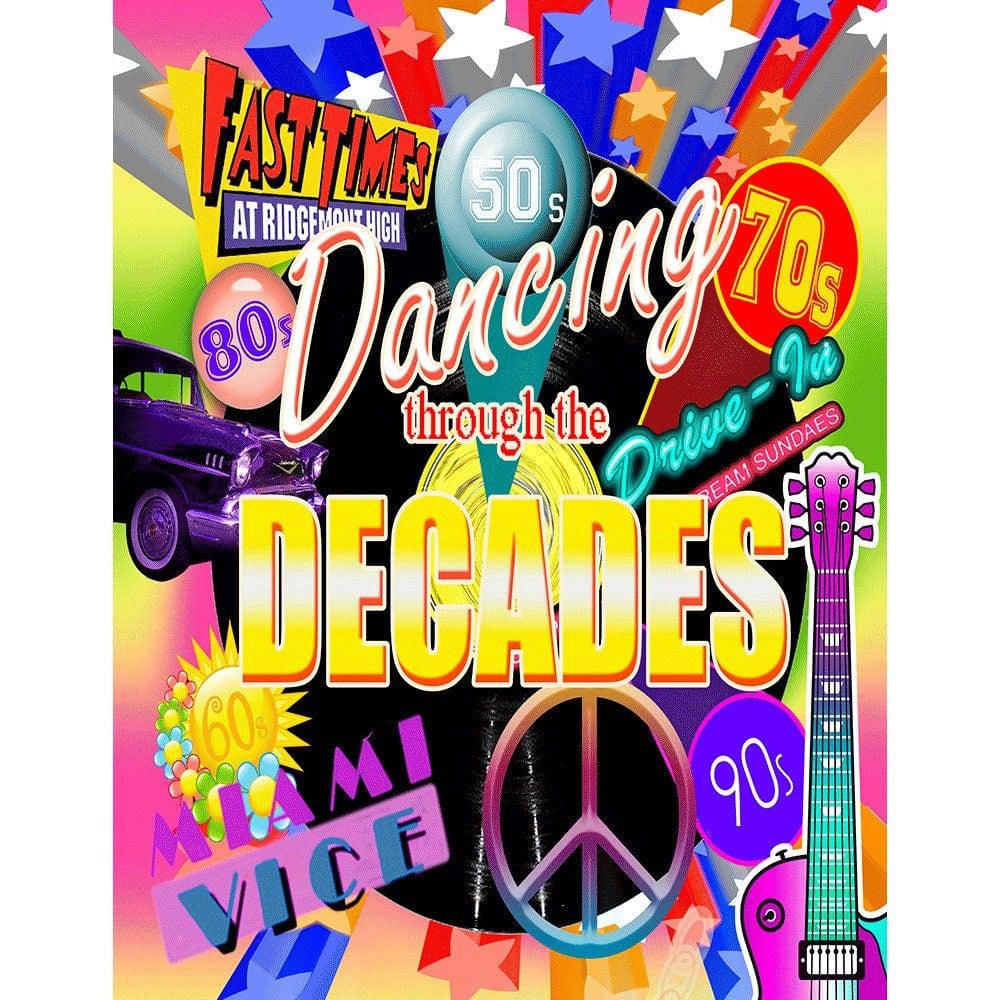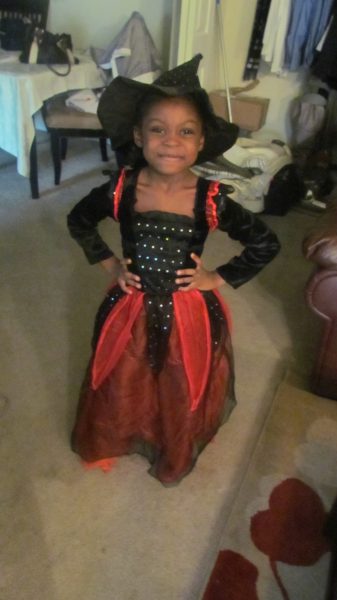Minority Scholars Program hosts town hall on colorism
Courtesy of Social Awareness Group
Minority Scholars Program hosts virtual townhall on colorism to educate and provide resources for students.
Minority Scholars Program (MSP) hosted a virtual Zoom Town Hall about colorism on December 18, 2020. There were over 90 students across the county in attendance, including 12 high schools and three middle schools.
“I can say that more people were in attendance and people from a broader range of schools attended as well,” senior and MSP secretary Alyssa Holt said. “I would say that this is definitely because of the fact that everything was virtual so it was easier for people to attend.”
Colorism is prejudice or discrimination against dark-skinned or darker-associated features, typically among people of the same ethnic or racial group. Historical examples include the Brown Paper Bag test and the Doll Test.
In the 1940s, Kenneth and Mamie Clark’s Doll Test examined kids’ behaviors towards race. In that video, 21 kids were asked to choose between a white doll and a black doll. 15 kids chose the white doll because they thought it was better. Only six kids chose the black doll. The case even contributed to Brown v. Board of Education.
During the MSP Town Hall, students played games such as “Where the Wind Blows,” in which participants kept their cameras on or off based on if they could relate to statements concerning colorism; “Colorist or not,” examining popular songs portraying colorism (Pretty Boy Swag by Souja Boy and Need a Stack by Chris Brown); and presentations on colorism and caste systems in different countries like India and African countries.
In India, dark-skinned people work as peasants, and as a result, they are referred to as “Untouchables.” It’s a common stereotype that East Asians are of higher economic status because they’re lighter-skinned than Southeast Asians. In African countries, particularly Nigeria, skin lightening products are marketed because lighter-skinned people are seen as beautiful.
“I was exceptionally proud of the Minority Scholars Program (MSP) selecting such an important topic to discuss and explore during a town hall,” MSP sponsor Joye Saxon said. “Many students at Watkins Mill and other MCPS high schools were in attendance including some adults. People had a lot to learn from the town hall. In terms of preventing colorism in our community, that can be achieved through a commitment to learn and seek out information.”
The Town Hall featured student speakers such as junior Hasham Khan and senior Grace Edwards about their experiences with colorism. “Humanity has not grown to accept each other as humans without labels,” Khan said.
“Skin tone is not a component of beauty. [It is] the same subjective beauty that we were taught through the brutal infiltrations of colonization. The internalization of skin tone preference within our own communities is one of the biggest causes of self-hate and insecurity,” Khan said.
“In my community, color became associated with the class,” Khan added. “I was the rightful speaker of authority, but my darker-skinned counterparts were not. They were outsiders.”
“Colorism was an unlikely companion as a child,” Edwards said. “I was formally introduced to colorism, in the name of the black girl trope at school. The black girl was seen as sassy, nasty, rude, and generally unpleasant towards her teacher and peers.”
“While we should continue to educate and understand the older generation, it’s not too late to focus on the present and eliminate toxic mentalities which seep into the minds of the vulnerable younger generation,” Edwards said in her story of self.
“And I suppose it always begins with taking that first step to converse and discuss why we might think the way we think, noticing it as what it is,” Edwards added. “Whether it be colorism, sexism, and microaggressions, asking them ‘why they think that way?’ and [bring] up to other ways of thinking, truly understanding one’s current role in society.”
Your donation will support the student journalists of Watkins Mill High School. Your contribution will allow us to purchase equipment and cover our annual website hosting costs.
Melody Safo is a senior at Watkins Mill High School. She is an Arts and Entertainment Managing Editor. This is her first time on the Current News staff....







